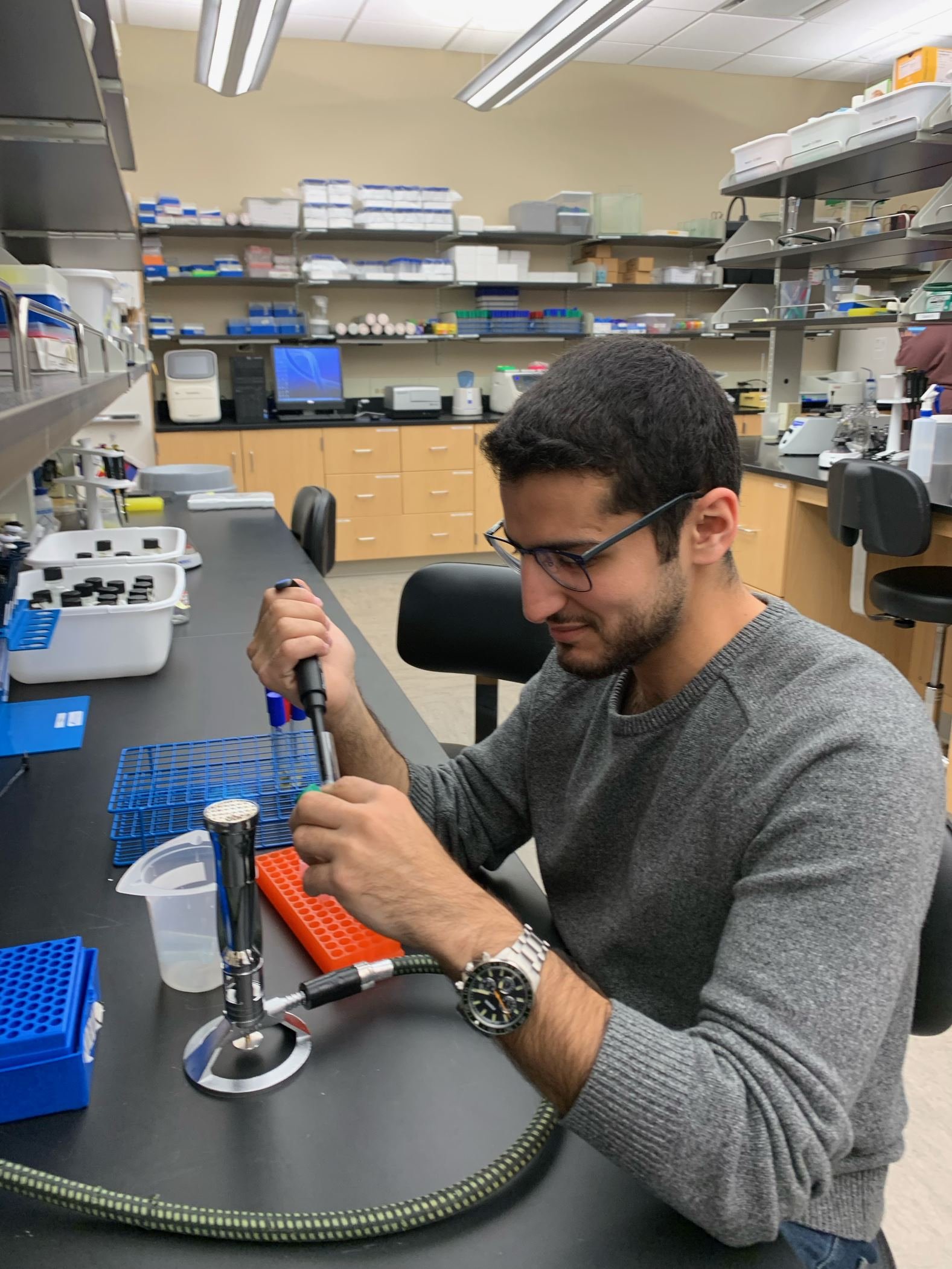James O’Connor, Tennessee ’21.
By James O’Connor, Tennessee ’21
Nowadays, anybody who is halfway decent at math and ready to get their hands dirty is labeled an “engineer” from the start. But that doesn’t mean that person is necessarily cut out to be all that is an engineer. Thankfully, I’m glad I earned that label, because I have come to love the idea of using my problem-solving skills to make things more efficient, specifically the body.
From the get-go, I have always been interested in the human body and how it worked, and biomedical engineering gives me the perfect opportunity to explore the way the body works and how we can make it more efficient. I’m most interested in how the brain works, and I recently picked up a minor in Neuroscience. One topic that fascinates me is sleep. Most college students are either sleep deprived or jacked up on caffeine to spend more hours studying, but what if there was a way to improve sleep quality and efficiency? I plan to get into research next semester, and my engineering brothers at Phi Tau have been a huge help with finding me the right people to reach out to at the University. Knowing me personally, it just seems there are never enough hours in the day to do everything I would like to do, so what if I spent less time sleeping and more time being productive?
Rather than bore you with my talk about research, I cannot express my gratitude to Phi Tau for the leadership opportunities and skills it has provided me. As philanthropy chair for our chapter, I was able to raise $5569 for our chapter in my first semester on the job—more than double our amount from last semester. I could not have done this without the help of my peers in Phi Tau and the mentoring they gave me about how to lead a group of guys. Leadership is often a topic, especially in the STEM field, that gets swept under the rug. However, by taking a leadership class on campus and through Phi Tau, I have found myself being much more productive team member and actually enjoying team projects, whereas I used to despise them.
By Zaid Hatem, Belmont ’19
Zaid Hatem, Belmont ’19.
Coming into Belmont, I had the sole aim of earning a degree in science, but I never knew what that pursuit could entail. As I progressed into my studies, I gained a unique perspective into the immense possibilities that STEM offers. My institution highly values scientific exploration, offering graduate-level research at an undergraduate pace. Indeed, this phenomenon was displayed throughout the courses that I had to take as a Biochemistry and Molecular Biology major, but that was only a glimpse into the world of scientific research.
In the summer following my first year, I had the opportunity to participate in Belmont University Summer Undergraduate Research Fellowship (SURF) and research endophytes within known medicinal plants in pursuit of novel antibiotic synthesis. As my first research experience as an undergraduate student, I learned laboratory techniques in microbiology, biochemistry, and genetics and was exposed to the professional aspects of conducting a major scientific study.
Utilizing that momentum, I began to integrate myself into other research projects that have spanned the last four semesters of my college career. Currently, under the supervision of an accomplished Belmont faculty and primary investigator, I am conducting a study that explores the mechanisms of mRNA export in S. cerevisiae under stressed environments, such as heat shock conditions. My project specifically focuses on identifying an unknown adaptor protein that assists the recruitment of another protein, Mex67, to the stress induced SSA4 mRNA transcript. When bound to Mex67, this transcript is targeted to the Nuclear Pore Complex for export into the cytosol to be translated by the ribosomal machinery into amino acids, the basic building blocks of all proteins.
I am thankful for these experiences because they have opened my eyes to the real world of scientific exploration. I had the opportunity to publish my work in the Vanderbilt Young Scientist Journal. I also had the chance to interact with aspiring and leading scientists at key academic events, such as Belmont University's Undergraduate Research Symposium and Tennessee Academy of Science annual conference, where my research efforts were being showcased. Most importantly, these opportunities allowed me to challenge myself with complex yet crucial questions and enhance my problem-solving skills, gaining affection for inquiry.
As I am nearing the end of my undergraduate education, I decided to utilize my love for scientific inquiry to pursue a career in medicine. My academic journey has provided me with skill sets that I believe will empower me to become a better physician in the future. Indeed, much of my success would not have been possible without the support of my brothers of Phi Kappa Tau. Throughout my time in the Zeta-Alpha Chapter, I had the incredible privilege to share a brotherhood filled with exceptional leaders and men who are genuinely committed to transforming their campus and community. Through the optimistic spirit and great determination instilled in these men, I am constantly encouraged to challenge myself and reach new academic and professional milestones. Inspired by their leadership, I served the chapter as the community service chair and the scholarship chair, and Belmont University's Student Body President for the year 2021. I am forever thankful for their constant encouragement and motivation, for they have molded me into a leader dedicated to going far every single day.
This is a sample from our most recent edition of The Laurel featuring members in STEM. To read the full issue or see past issues and sign up for distribution head to phikappatau.org/laurel.


